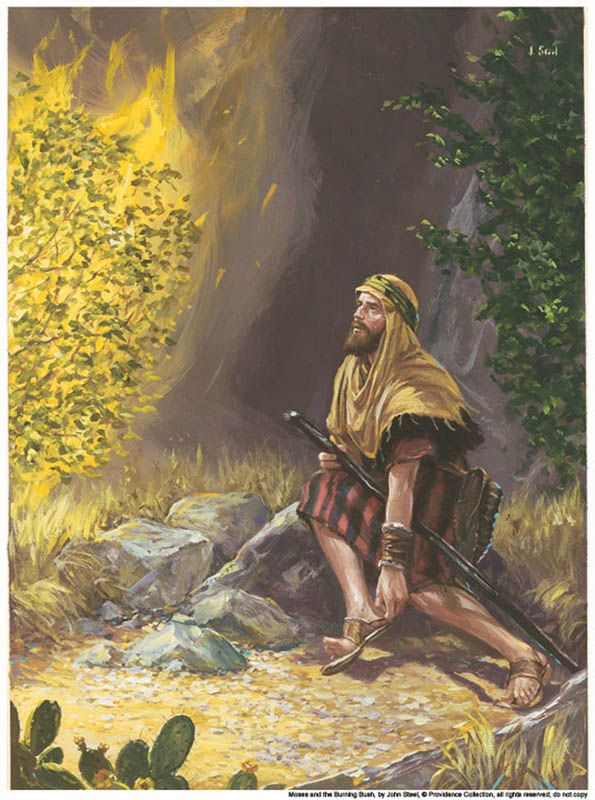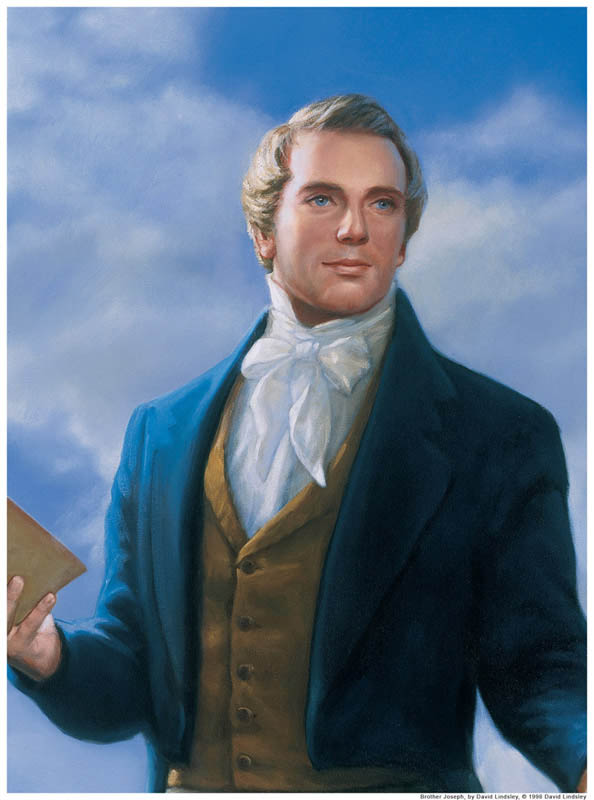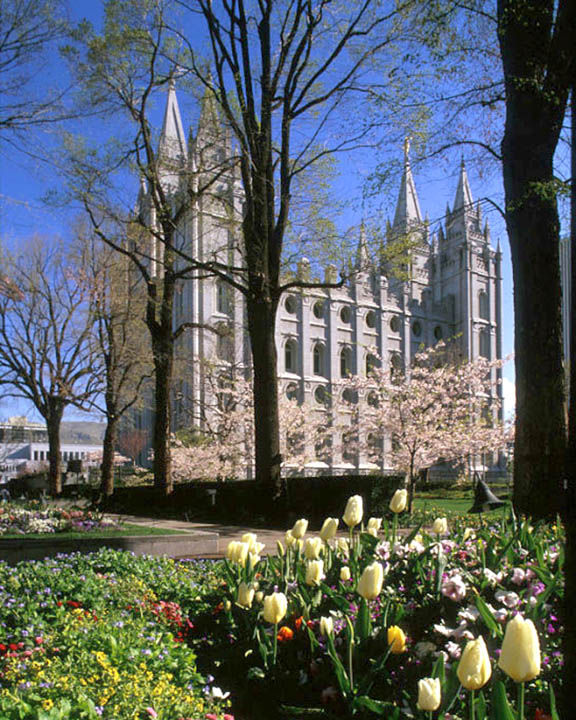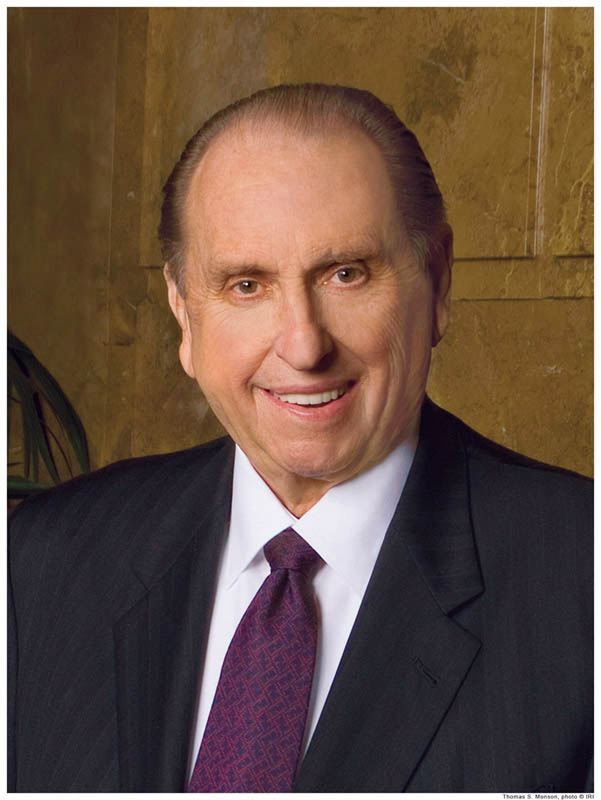What is a prophet?
 The Church of Jesus Christ of Latter-day Saints (often called the Mormon Church) teaches that there are living prophets today, just as there were in ancient times. The functions of a prophet have not changed and include many responsibilities. One of these responsibilities is to receive revelation from God for the entire world. While most of these revelations are only appreciated by members of the Mormon faith for actually being from God, the prophet still has the responsibility to preach the word of God to the whole world. The living prophet is the only person on the earth who has the authorization to receive revelation for the whole church, as well.
The Church of Jesus Christ of Latter-day Saints (often called the Mormon Church) teaches that there are living prophets today, just as there were in ancient times. The functions of a prophet have not changed and include many responsibilities. One of these responsibilities is to receive revelation from God for the entire world. While most of these revelations are only appreciated by members of the Mormon faith for actually being from God, the prophet still has the responsibility to preach the word of God to the whole world. The living prophet is the only person on the earth who has the authorization to receive revelation for the whole church, as well.
One of the prophet’s most important calls is to testify that Jesus is the Christ and to “make known God’s will and true character. [Prophets] speak boldly and clearly, denouncing sin and warning of its consequences. At times, they may be inspired to prophesy of future events for our benefit” (True to the Faith, p129–130).
We are very blessed to have a living prophet on the earth today, but having one places more accountability on the rest of us. If we do not heed his words and his warnings, which ultimately come from God, then we will be cut off from God’s presence: “And the arm of the Lord shall be revealed; and the day cometh that they who will not hear the voice of the Lord, neither the voice of his servants, neither give heed to the words of the prophets and apostles, shall be cut off from among the people” (D&C 1:14).
Despite receiving a calling from God, a prophet is still a man. He is still fallible, he still has his own opinions about things. This can lead to some confusion for outsiders looking in about when a prophet is speaking in his capacity as prophet and when he is speaking as a man. This confusion can be dispelled, however, but looking at the prophet’s actual words. If he is speaking on behalf of the Lord, he will say so. If he does not speak in that capacity, it will be clear.
Joseph Smith as a Prophet
 Many critics of Joseph Smith declare that he was either a false prophet or a fallen prophet. Much of the evidence they use to prove their point is records of when Joseph made mistakes or failed financially. These are irrelevant. A brief overview of the Old Testament is full of prophets who felt unworthy or who made mistakes. Moses needed the help of his father-in-law, Jethro, to solve the problem of the people pestering him with their problems. When Moses was called of God, he declared he was slow of speech. When he lacked faith to proceed on his own, though God told Moses He would help him, God gave Moses Aaron as an interpreter. Enoch felt he was too young and slow of speech to be listened to. Jeremiah also felt he was too young to be heeded. Joseph Smith was a young, poorly educated farm boy when he was called. Yet, he remained humble. He was taught by the powers of heaven and there is great power and authority in his words.
Many critics of Joseph Smith declare that he was either a false prophet or a fallen prophet. Much of the evidence they use to prove their point is records of when Joseph made mistakes or failed financially. These are irrelevant. A brief overview of the Old Testament is full of prophets who felt unworthy or who made mistakes. Moses needed the help of his father-in-law, Jethro, to solve the problem of the people pestering him with their problems. When Moses was called of God, he declared he was slow of speech. When he lacked faith to proceed on his own, though God told Moses He would help him, God gave Moses Aaron as an interpreter. Enoch felt he was too young and slow of speech to be listened to. Jeremiah also felt he was too young to be heeded. Joseph Smith was a young, poorly educated farm boy when he was called. Yet, he remained humble. He was taught by the powers of heaven and there is great power and authority in his words.
Though prophesying of future events is only a small portion of the role of a prophet, looking at Joseph Smith’s prophecies and the fulfillment of them quickly shows he was intelligent beyond his day and beyond his education. Another factor must have been present in his life for him to know the things he knew: he truly was inspired by God.
Below is a list of just a few of the prophecies of Joseph Smith that have been fulfilled. These are things Joseph Smith foresaw which he could have had no knowledge of without divine inspiration. Sure, if somebody makes enough guesses, he is bound to be right sooner or later. Many so-called psychics, astrologers, and self-proclaimed prophets make so many guesses, or are deliberately vague in their predictions, they are bound to hit upon something sometime. A real prophet is different. When a real prophet speaks as the mouthpiece of God, there is no guesswork. Looking at the prophecies Joseph Smith made leaves no room for doubt as to where these prophecies came from. While there are still some of his prophecies which have not been fulfilled, it is certain that they will be fulfilled.
1. Joseph Smith foresaw the growth of The Church of Jesus Christ of Latter-day Saints. What started as a young church with only six members is now a worldwide church with more than 14 million members. Joseph Smith prophesied that the Mormon Church would grow until it filled the earth and that the gospel would be taken to every nation, tongue, and kindred. This prophecy is continuing to be fulfilled today, but the explosive growth of the Mormon Church (reaching 30,000 members in its first ten years) speaks for itself. Truth resonates with people worldwide, and soon every nation will be open to the gospel.
2. Joseph Smith prophesied that the Civil War would take an unimaginable number of lives, that it would begin in South Carolina, and that slavery would likely play a large role in it. He foresaw these events 20 years before they happened. Looking back, it seems these things are obvious. However, at the time Joseph received this revelation, no one predicted these events.
3. When the Saints were thrust out of Jackson County, Missouri, under the authority of the extermination order issued by Governor Lilburn W. Boggs, Joseph Smith prophesied the destruction of that place. He said to General Alexander Doniphan (not a Mormon himself, but a defender of the people): “God’s wrath hangs over Jackson County. God’s people have been ruthlessly driven from it, and you will live to see the day when it will be visited by fire and sword. The Lord of Hosts will sweep it with the besom of destruction. The fields and farms and houses will be destroyed, and only the chimneys will be left to mark the desolation.”
When the Civil War was fought, many of the most costly battles were fought on Missouri soil. General Doniphan personally witnessed the fulfillment of Joseph Smith’s prophecy. Mr. A. Saxey of Utah wrote a letter to Mr. Junius Wells on August 25, 1902, and recorded the sight that lay before him when he visited the area with his regiment:
“In the spring of 1862 my regiment went south, and it was during that time that ‘Order No. 11’ was issued, but I was back there again in 1864, during the Price raid, and saw the condition of the country. The duty of executing the order was committed to Colossians W. R. Penick’s regiment, and there is no doubt but that he carried it into effect, from the howl the copperhead papers made at the time. I went down the Blue river, we found houses, barns, outbuildings, nearly all burned down, and nothing left standing but the chimneys which had, according to the fashion of the time, been built on the outside of the buildings. I remember very well that the country looked a veritable desolation.”
 4. Joseph Smith foresaw that the Saints would flourish in the Rocky Mountains. In 1831, Joseph prophesied: “Zion shall flourish upon the hills and rejoice upon the mountains, and shall be assembled together unto the place which I have appointed” (Doctrine and Covenants 49:25). While this prophecy does not specifically mention the Rocky Mountains, a journal entry from B.H. Roberts includes another time Joseph addressed this matter and did specifically mention the Rockies (Comprehensive History of the Church , Vol. 2, Ch. 51, pp.181–182). In this record, Roberts declares that Joseph described the land in great detail and singled out many of the men present telling them they would have unique roles to play in the development of that land.
4. Joseph Smith foresaw that the Saints would flourish in the Rocky Mountains. In 1831, Joseph prophesied: “Zion shall flourish upon the hills and rejoice upon the mountains, and shall be assembled together unto the place which I have appointed” (Doctrine and Covenants 49:25). While this prophecy does not specifically mention the Rocky Mountains, a journal entry from B.H. Roberts includes another time Joseph addressed this matter and did specifically mention the Rockies (Comprehensive History of the Church , Vol. 2, Ch. 51, pp.181–182). In this record, Roberts declares that Joseph described the land in great detail and singled out many of the men present telling them they would have unique roles to play in the development of that land.
At the time Joseph made this declaration, the Rocky Mountains were in virtually unknown and unexplored territory. The Mississippi River was the extreme borders of the frontier for the country. In addition, the Saints were fairly happily settled in Illinois at the time, and many of them thought they would be there permanently. Because Joseph was privy to revelation, however, he knew that the temporary peace would end with the Saints yet again being cast out of their homes. It was Brigham Young who eventually led the Saints to the Rockies and helped them settle in what became the state of Utah, but that was not for another 5 years and not until after the murder of the Prophet Joseph Smith.
5. Not long after Joseph Smith prophesied that the Saints would end up in the Rocky Mountains, the persecution with which they had become so familiar threatened them again. Joseph promised his people peace within 5 years. “[Joseph Smith] prophesied that within five years we should be out of the power of our old enemies, whether they were apostates or of the world; and told the brethren to record it, that when it comes to pass they need not say they had forgotten the saying” (History of the Church , Vol. 6, p. 225). The Saints began gathering in the Salt Lake Valley in 1847 and were virtually all gathered by 1849. Though they did suffer persecution there later, it was from different people and for different reasons; thus, they had escaped the power of old enemies.
6. The last prophecy Joseph Smith ever recorded was that of his own death. On Saturday, June 22, 1844, Joseph recorded in his journal: “I told Stephen Markham that if I and Hyrum were ever taken again we should be massacred, or I was not a prophet of God” (History of the Church, Vol. 6, p. 546).
Only a few days later, he and Hyrum turned back from fleeing Nauvoo for their own protection. They gave themselves up to the law for yet more unjust charges which had been brought against them. They were placed in Carthage Jail and on June 27, a mob stormed the jail and killed both Hyrum and Joseph. The other two men in the jail with them survived. Joseph foresaw his death and knew what awaited him, even though he had been promised safety and protection by the highest authorities in the region.
What having living prophet means for us today.
These are just a very small sampling of some of Joseph Smith’s prophecies. He received countless more, many of which are recorded in the Doctrine and Covenants. Many of the prophecies and revelations he received were in the presence of other people. Some of these people later left the Mormon Church, but they never denied their experiences.
 There are many ways to prove that Joseph Smith was who he said he was. Looking at all he did and analyzing it with logic can leave no other viable alternative. However, each member of The Church of Jesus Christ of Latter-day Saints must receive a personal testimony that Joseph Smith was called of God. This personal testimony must come through the witness and power of the Holy Ghost. Logic is not enough. One must know in one’s heart that Joseph Smith was a prophet of God.
There are many ways to prove that Joseph Smith was who he said he was. Looking at all he did and analyzing it with logic can leave no other viable alternative. However, each member of The Church of Jesus Christ of Latter-day Saints must receive a personal testimony that Joseph Smith was called of God. This personal testimony must come through the witness and power of the Holy Ghost. Logic is not enough. One must know in one’s heart that Joseph Smith was a prophet of God.
The blessing of having a living prophet on the earth today is important and very comforting. Continuous revelation is important, not because God changes, but because people change and society changes. It is essential to have a prophet telling the world God’s will for them in their own time.
